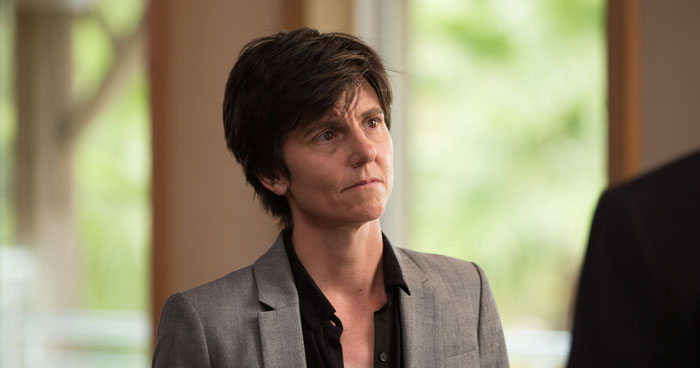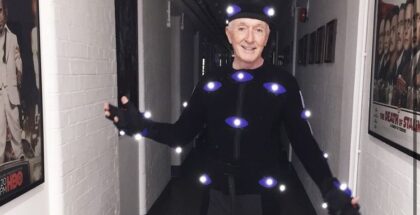Why One Mississippi should be your next box set
Review Overview
Humour
8Heart
8Honesty
8David Farnor | On 12, Sep 2016
Cancer. Death. Divorce. They don’t sound like the basis of a typical sitcom, but One Mississippi isn’t your typical sitcom. It’s a show that deals in tragedy, suffering and loneliness. In fact, it might just be the most miserable comedy ever.
That doesn’t sound like a ringing endorsement, especially in an age when comedians are lining up to play serious characters in bittersweet dramas, often based, in part, on themselves. But in Tig Notaro’s case, the sober semi-autobiography is more than justified: it follows her dealing with the death of her mother, as well as moving on from a surgically-cured brush with breast cancer. These are the kind of topics that most TV shows don’t really go anywhere near, not with this kind of close-up intimacy. The fact that Tig is rooting it all in her own experience not only makes that possible, but also makes it astonishingly powerful.
Notaro co-writes her script with Diablo Cody, giving each encounter an acerbic edge that blisters beautifully in the show’s harsh spotlight. Conversations with her stepfather, Bill, prickle with unspoken grief, while an encounter with a doctor suggesting she insert poo up her bottom to cure a bowel disorder bristles with hysterical cynicism.
Director Nicole Holofcener, who has history with the awkward and the painful, is a similarly perfect fit for the material, finding laughs and sadness in even the final moments of Tig’s mother’s life, as she wheezes for breath in hospital. “Good night,” says Tig’s girlfriend as they go to sleep. “Bad night,” comes the reply, without missing a beat.
Notaro is a natural at playing herself, swinging between goofy, forced efforts to sieze the day (inspired by a fling with local news reporter, Jessie) and downbeat, quiet moments of vulnerability. Her deadpan presence lets the rest of the cast move between tender and over-the-top – John Rothman’s Bill manages a superb transition from anal and distant to kind and caring, while a scene-stealing Stephanie Allynne is disarmingly (and uniquely) upbeat as radio manager Kate. Noah Harpster, a veteran of Amazon’s similarly toned Transparent, slips in seamlessly as her slacker brother, Remy.
The gentle sway between dark and light skews more on the former side than the latter, which means that you’ll spend a large amount of time not laughing, but that only makes the comedy even more effective, as amusing dialogue jumps naturally out of even the most sober scene. Sudden leaps into wonderfully surreal flights of fantasy only reinforce how anchored we are to Tig’s warped view of the world.
That warts-and-all tone keeps you so emotionally engaged that you’ll be three-quarters of the way through the eight episodes before you know it – at which point you’ll be surprised to find yourself in tears. And yet even the moments that do make you cry are boldly underplayed, with one scene involving a mirror proving devastating in its simplicity. That’s the secret to One Mississippi’s sincerity: neither the comedy nor the drama feels forced, which takes a colossal amount of unseen talent. Carefully, cleverly, Tig takes us on a tour through the trauma of her personal history, past selves and perception of the future, each stop along the way feeling intensely real. The result is deep, brooding and provocative telly, served up with a heartwarming honesty. Doesn’t sound like a fun watch? You’d be wrong. This is the most miserable comedy ever. And it’s magnificent.




















